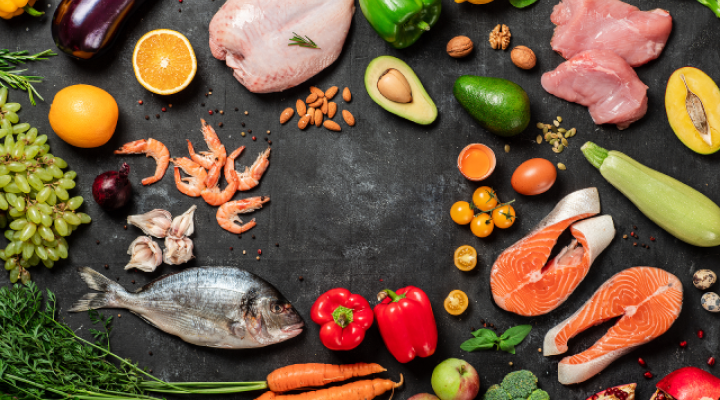Still a hot topic in food trends the Paleo diet takes us back to the dietary behaviour from the Palaeolithic Era, approximately 10 thousand years ago. The era was defined by small nomad societies that survived by gathering plants, fishing, hunting and scavenging wild animals, and by the end they started to settle down into permanent locations and agriculture was created. Thus, during modern times, the Paleo diet is modelled on what we assumed that our nomad ancestors consumed.
Why the interest in Paleo?
The reasoning behind the diet, is that industrialization changed the human behaviour towards diet and outpaced the body’s ability to adapt. Therefore, the goal is to take us back to simpler times and assist on the prevention of dietary related diseases such as; obesity, diabetes and heart disease. In addition to this, we can also contribute to weight loss and a healthier lifestyle. A strict follower of this diet is aiming to eliminate all highly processed foods, sugar, salt, dairy and grains. Instead they are looking to introduce more nuts, herbs, lean meats and vegetables into their routine. Some of the associated benefits of a Paleo diet are Weight loss, improved glucose tolerance, better blood pressure, lower triglycerides and better appetite management.
Modern Paleo
At first, it would seem that Paleo products wouldn’t fit on a shelf in the supermarket, given that followers are mainly avoiding industrialized products and focusing on the fresh section. However, Paleo is a convergence of wellness trends seen in snacking for the past few years, such as sugar and gluten avoidance, and more inclusion of protein from nuts and healthy fats. According to a survey conducted by our IRI peers in the US, 47% of consumers are looking for Snacks low in sugar, 64% for snacks that will boost energy, like nuts and health fats and 40% looking for natural and organic products. Thus, it seems that a Paleo Snacking product meets all of consumers’ needs as listed above, in one single product.
Paleo in Australia
Australia is a country with peckish shoppers, with 35% of us snacking 3 or more times per day. Moreover, on average an Australian works 6 hours of overtime per week and 20% are under time pressure when shopping. But, they are still looking for healthier options for their physical and mental health (63% of shoppers claiming their diet is important to them). The sum of these factors led health brands to add over $5M in growth in the past 2 years, supported by natural ingredients, free from preservatives, organic and good fats.
Interestingly enough, the trends that have been providing growth within the health snacks are all present in Paleo products. On the other hand, the presence of Paleo products is still shy in Australian Grocery Retailers. Blue Dinosaur, for instance, is the only brand entirely dedicated to Paleo products in snacking in the market, which is still gaining space within the snacking aisle regarding share, but has already reported aggressive growth, above 50% in its units sold.
Trend or Fad?
Paleo diet followers are trying to move away from industrialized products in an attempt to be healthier. And while this may just be the latest iteration of an Atkins, Keto or sugar free fad. The underlying trend remains consistent; Australian consumers are actively trying to be healthier and are placing greater importance on their Snack choices.
Author: Raphael Campos is a senior associate consultant specialising in food and beverage insights at IRI.
Sources:
IRI Market Moves Nov 2019 – Market Edge total supermarket weighted MAT to 09/07/19 and IRI Shopper Survey 2019
IRI US: how America Eats – Snacking Lifestyles are here to stay April 14, 2020. Sally Lyons Wyatt
https://www.healthline.com/nutrition/paleo-diet-meal-plan-and-menu#section4
https://www.mordorintelligence.com/industry-reports/paleo-food-market






